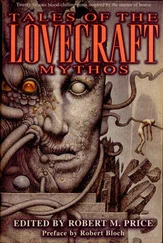Robert Pirsig - Lila. An Inquiry Into Morals
Здесь есть возможность читать онлайн «Robert Pirsig - Lila. An Inquiry Into Morals» весь текст электронной книги совершенно бесплатно (целиком полную версию без сокращений). В некоторых случаях можно слушать аудио, скачать через торрент в формате fb2 и присутствует краткое содержание. Жанр: Современная проза, на английском языке. Описание произведения, (предисловие) а так же отзывы посетителей доступны на портале библиотеки ЛибКат.
- Название:Lila. An Inquiry Into Morals
- Автор:
- Жанр:
- Год:неизвестен
- ISBN:нет данных
- Рейтинг книги:3 / 5. Голосов: 1
-
Избранное:Добавить в избранное
- Отзывы:
-
Ваша оценка:
- 60
- 1
- 2
- 3
- 4
- 5
Lila. An Inquiry Into Morals: краткое содержание, описание и аннотация
Предлагаем к чтению аннотацию, описание, краткое содержание или предисловие (зависит от того, что написал сам автор книги «Lila. An Inquiry Into Morals»). Если вы не нашли необходимую информацию о книге — напишите в комментариях, мы постараемся отыскать её.
Lila. An Inquiry Into Morals — читать онлайн бесплатно полную книгу (весь текст) целиком
Ниже представлен текст книги, разбитый по страницам. Система сохранения места последней прочитанной страницы, позволяет с удобством читать онлайн бесплатно книгу «Lila. An Inquiry Into Morals», без необходимости каждый раз заново искать на чём Вы остановились. Поставьте закладку, и сможете в любой момент перейти на страницу, на которой закончили чтение.
Интервал:
Закладка:
Ornamental cast-iron. If you hit it with a sledgehammer it doesn’t bend. It just shatters into ugly, coarse fragments. The intellectual social reforms of this century just shattered those Victorians. All that’s left of them now is ugly fragments of their ornamental cast-iron way of life turning up at odd places, such as these mansions and in Rigel’s talk this morning.
Instead of improving the world forever with their high-flown moral codes they did just the opposite: left the world a moral vacuum we’re still living in. Rigel too. When Rigel starts all that breakfast oratory about morals he’s just blowing hot air. He doesn’t know what he’s talking about. He’s just trying to imitate a Victorian because he thinks it sounds good.
Phædrus had told Rigel he couldn’t answer Rigel’s question because it was too difficult, but that didn’t mean it couldn’t be done. It could be done, but not with direct answers. Clever, hip-shot answers have to come out of the culture you’re living in and the culture we’re living in doesn’t have any quick answer to Rigel. To answer him you have to go all the way back to fundamental meanings of what is meant by morality and in this culture there aren’t any fundamental meanings of morality. There are only old traditional social and religious meanings and these don’t have any real intellectual base. They’re just traditions.
That’s why Phædrus got such a weary feeling from all this. All the way back to the beginning. That’s where he had to go.
Because Quality is morality. Make no mistake about it. They’re identical. And if Quality is the primary reality of the world then that means morality is also the primary reality of the world. The world is primarily a moral order. But it’s a moral order that neither Rigel nor the posing Victorians had ever, in their wildest dreams, thought about or heard about.
8
The idea that the world is composed of nothing but moral value sounds impossible at first. Only objects are supposed to be real. Quality is supposed to be just a vague fringe word that tells what we think about objects. The whole idea that Quality can create objects seems very wrong. But we see subjects and objects as reality for the same reason we see the world right-side up although the lenses of our eyes actually present it to our brains upside down. We get so used to certain patterns of interpretation we forget the patterns are there.
Phædrus remembered reading about an experiment with special glasses that made users see everything upside down and backward. Soon their minds adjusted and they began to see the world normally again. After a few weeks, when the glasses were removed, the subjects again saw everything upside down and had to relearn the vision they had taken for granted before.
The same is true of subjects and objects. The culture in which we live hands us a set of intellectual glasses to interpret experience with, and the concept of the primacy of subjects and objects is built right into these glasses. If someone sees things through a somewhat different set of glasses or, God help him, takes his glasses off, the natural tendency of those who still have their glasses on is to regard his statements as somewhat weird, if not actually crazy.
But he isn’t. The idea that values create objects gets less and less weird as you get used to it. Modern physics on the other hand gets more and more weird as you get into it and indications are that this weirdness will increase. In either case, however, weirdness isn’t the test of truth. As Einstein said, common sense — non-weirdness — is just a bundle of prejudices acquired before the age of eighteen. The tests of truth are logical consistency, agreement with experience, and economy of explanation. The Metaphysics of Quality satisfies these.
The Metaphysics of Quality subscribes to what is called empiricism. It claims that all legitimate human knowledge arises from the senses or by thinking about what the senses provide. Most empiricists deny the validity of any knowledge gained through imagination, authority, tradition, or purely theoretical reasoning. They regard fields such as art, morality, religion, and metaphysics as unverifiable. The Metaphysics of Quality varies from this by saying that the values of art and morality and even religious mysticism are verifiable, and that in the past they have been excluded for metaphysical reasons, not empirical reasons. They have been excluded because of the metaphysical assumption that all the universe is composed of subjects and objects and anything that can’t be classified as a subject or an object isn’t real. There is no empirical evidence for this assumption at all. It is just an assumption.
It is an assumption that flies outrageously in the face of common experience. The low value that can be derived from sitting on a hot stove is obviously an experience even though it is not an object and even though it is not subjective. The low value comes first, then the subjective thoughts that include such things as stove and heat and pain come second. The value is the reality that brings the thoughts to mind.
There’s a principle in physics that if a thing can’t be distinguished from anything else it doesn’t exist. To this the Metaphysics of Quality adds a second principle: if a thing has no value it isn’t distinguished from anything else. Then, putting the two together, a thing that has no value does not exist. The thing has not created the value. The value has created the thing. When it is seen that value is the front edge of experience, there is no problem for empiricists here. It simply restates the empiricists' belief that experience is the starting point of all reality. The only problem is for a subject-object metaphysics that calls itself empiricism.
This may sound as though a purpose of the Metaphysics of Quality is to trash all subject-object thought but that’s not true. Unlike subject-object metaphysics the Metaphysics of Quality does not insist on a single exclusive truth. If subjects and objects are held to be the ultimate reality then we’re permitted only one construction of things — that which corresponds to the objective world — and all other constructions are unreal. But if Quality or excellence is seen as the ultimate reality then it becomes possible for more than one set of truths to exist. Then one doesn’t seek the absolute Truth . One seeks instead the highest quality intellectual explanation of things with the knowledge that if the past is any guide to the future this explanation must be taken provisionally; as useful until something better comes along. One can then examine intellectual realities the same way one examines paintings in an art gallery, not with an effort to find out which one is the real painting, but simply to enjoy and keep those that are of value. There are many sets of intellectual reality in existence and we can perceive some to have more quality than others, but that we do so is, in part, the result of our history and current patterns of values.
Or, using another analogy, saying that a Metaphysics of Quality is false and a subject-object metaphysics is true is like saying that rectangular coordinates are true and polar coordinates are false. A map with the North Pole at the center is confusing at first, but it’s every bit as correct as a Mercator map. In the Arctic it’s the only map to have. Both are simply intellectual patterns for interpreting reality and one can only say that in some circumstances rectangular coordinates provide a better, simpler interpretation.
The Metaphysics of Quality provides a better set of coordinates with which to interpret the world than does subject-object metaphysics because it is more inclusive. It explains more of the world and it explains it better. The Metaphysics of Quality can explain subject-object relationships beautifully but, as Phædrus had seen in anthropology, a subject-object metaphysics can’t explain values worth a damn. It has always been a mess of unconvincing psychological gibberish when it tries to explain values.
Читать дальшеИнтервал:
Закладка:
Похожие книги на «Lila. An Inquiry Into Morals»
Представляем Вашему вниманию похожие книги на «Lila. An Inquiry Into Morals» списком для выбора. Мы отобрали схожую по названию и смыслу литературу в надежде предоставить читателям больше вариантов отыскать новые, интересные, ещё непрочитанные произведения.
Обсуждение, отзывы о книге «Lila. An Inquiry Into Morals» и просто собственные мнения читателей. Оставьте ваши комментарии, напишите, что Вы думаете о произведении, его смысле или главных героях. Укажите что конкретно понравилось, а что нет, и почему Вы так считаете.











